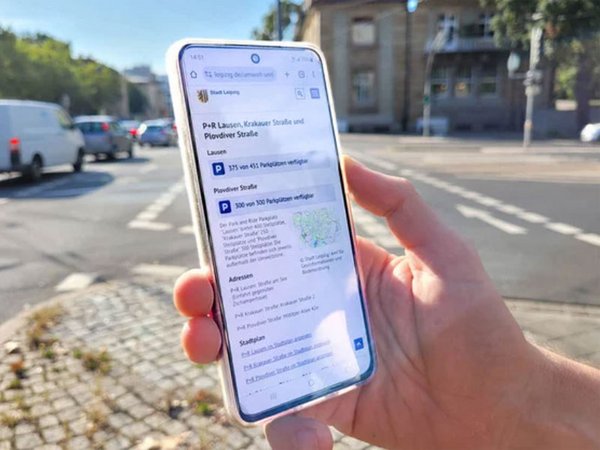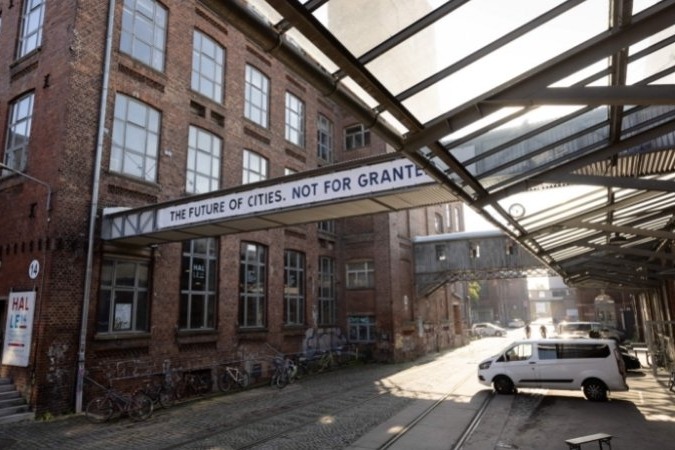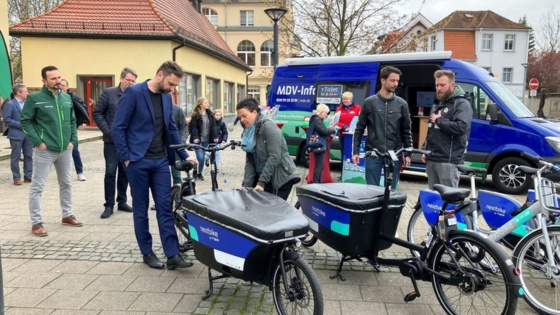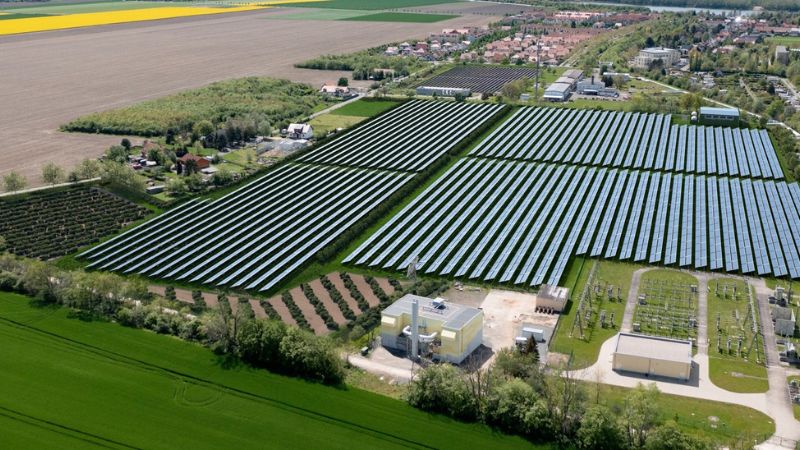The Leipzig Public Transport Company (LVB), in collaboration with the City of Leipzig, has introduced an innovative feature in the LeipzigMove app. Since last month, this feature has been aimed at enhancing the use of Park-and-Ride (P+R) facilities during big events like football matches or concerts, while also providing effective guidance to drivers. It enables real-time monitoring of parking space availability on these premises. Currently, the functionality is in the testing phase.
1 min read
Seamless parking solution: Leipzig's park and ride spaces in real time
By Linh Pham on Oct 13, 2023 4:04:49 PM
Topics: News smart city
3 min read
SPARCS: Pioneering sustainable energy solutions in Leipzig and beyond
By Linh Pham on Aug 7, 2023 1:52:30 PM
Under the guidance of the EU initiative SPARCS (Sustainable energy Positive & zero cARbon CommunitieS), an innovative endeavor is underway to establish a comprehensive energy district in the western region of Leipzig. Collaboratively, seven European cities are dedicating their efforts to the development of an innovative framework that interconnects neighborhoods, blocks, and structures into a sophisticated smart energy ecosystem. The primary objective of this initiative is to significantly curtail CO2 emissions while concurrently augmenting the integration of renewable energy sources.
Leipzig - Leading Sustainable Transformation as a Lighthouse City
The lighthouse cities Espoo (Finland) and Leipzig (Germany) are implementing large-scale demonstration projects. Lighthouse cities are pioneers committed to creating sustainable, energy-positive, and zero-carbon communities. The EU funded project provides support as these cities address multifaceted challenges on their path to sustainability. Through inclusive management and planning models, SPARCS aims to demonstrate and validate innovative solutions for smart and integrated energy systems. These efforts will transform these cities into sustainable, zero-carbon ecosystems, enhancing the quality of life for their citizens.
The group includes 31 partners from ten countries. In Leipzig, the venture is being carried out by the City of Leipzig along with the following partners: Leipziger Stadtwerke, University of Leipzig, Fraunhofer Center for International Management and Knowledge Economy, Wohnen & Service Leipzig, Cenero Energy, and seecon Ingenieure.
SPARCS in Action: Realized Projects Shaping Leipzig's Future
Green electricity for the Leipzig Cotton Mill
SPARCS is transforming the former largest cotton mill (Baumwollspinnerei) site in Europe into an innovative, sustainable neighborhood. The model district at Baumwollspinnerei will feature a self-consumption photovoltaic system with energy storage, a grid connection, and a connected heating system to ensure future electricity and heat supply. Excess energy will be fed into the Stadtwerke Leipzig grid. In the realm of e-mobility, SPARCS introduces forward-looking solutions at Baumwollspinnerei. A centralized charging network for tenants and public e-car sharing is being established. Research-oriented bidirectional charging stations will enable commercial fleet vehicles to both receive and return electricity.
Exploring Real-time Energy Management
Energy management helps to optimize the energy system, detect faults, reduce losses, automate energetic functions, and make them more efficient. The data helps identify weak points, and a concept is developed to enhance the system. Recently, the Cenero Energy Showrooms opened on the historic site of the Baumwollspinnerei in Leipzig. It is with great pleasure that we announce that BITROAD managing director and SpinLab partner Lukas Zechel has been appointed COO of cenero.one, bringing his multifaceted perspective to this exciting project. In this showroom, visitors can experience Cenero.one first-hand, a state-of-the-art live energy management platform. The data presented at the showroom offers insight to the various innovative measures implemented at the Baumwollspinnerei. Here Cenero.one, analyze and report the results of the different interventions. Visitors can witness the energy dynamics of the location in a variety of charts and dashboards.
Leipziger Stadtwerke tests holistic energy data management
Leipziger Stadtwerke, within the SPARCS initiative, has undertaken the implementation of a holistic energy data management system aimed at facilitating coordinated interactions among diverse sectors like energy, e-mobility, producers, and consumers. This endeavor seeks to enhance data exchange across different digital systems, emphasizing interoperability. By integrating open-source programs and standardized technologies, the project established a virtual power plant (VPP) as a comprehensive energy management system.
Get here to the SPARCS website not to miss current developments and events.
Topics: News smart city
1 min read
Schkeuditz's autonomous mobility journey with Nextbike's rental bikes
By Linh Pham on Jun 8, 2023 3:55:21 PM
Since April, people in Schkeuditz have been able to rent bicycles flexibly as part of a two-year pilot project. At least 85 bicycles from the company nextbike by TIER are available in the town, which will initially be supplemented by cargo bikes. The new bike rental service is part of the "Ready for Smart City Robots" (R4R) project funded by the German Federal Ministry of Digital Affairs and Transport. The research project seeks to find out whether small cities are suitable for autonomous mobility systems. Where are the obstacles, and how must the infrastructure be transformed and upgraded so that something like this is feasible? Following a Europe-wide call for applications, the company nextbike was selected for the two-year pilot project, which will be extended to the city of Taucha in 2024.
Topics: News smart city
2 min read
Germany's largest solar thermal plant to be constructed in Leipzig
By Linh Pham on Apr 5, 2023 4:51:02 PM
Multi-utility Leipziger Stadtwerke will build Germany's largest solar thermal plant on a 14-hectare field in the Lausen-Grünau district of Leipzig. Leipziger Stadtwerke is part of the SpinLab partner Leipziger Gruppe. The project is part of the city's transformation plan for district heating to more renewable energies. The plant is expected to generate around 26 GWh of heat annually. This is a significant contribution to covering Leipzig's daily heat demand in the summer, amounting to about 20%.













/White%20Versions/stadt_leipzig_white.png?width=130&name=stadt_leipzig_white.png)
/White%20Versions/sachsen_signet_white.png?width=90&name=sachsen_signet_white.png)